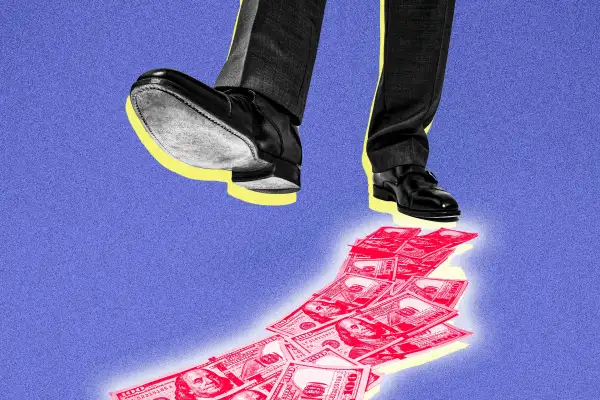Boomers Are at Higher Risk of Running Out of Retirement Money Than Younger Workers

The kids really are all right, at least when it comes to saving for retirement. New research finds that younger American workers are actually positioned to have greater financial security in their post-work years than older generations.
Just over a third of Gen Z workers and 44% of millennial workers are projected to run out of money in retirement, compared to 47% of Gen X and 52% of baby boomers, according to Morningstar's model of retirement outcomes.
“The results for baby boomers and Gen X are in a large part already determined by their current level of retirement savings, as members of these generations do not have that much time left to save for retirement,” the report said. Younger generations, though, still have time to build financial security for their golden years.
Crucially, the predictions are based on the assumption that there will be no changes to Social Security. If there are cuts to Social Security benefits in the coming years, this modeling would be thrown off. Younger generations could be severely affected in such a scenario, while older Americans would likely be spared — at least to an extent — as there’s a strong political consensus against cutting benefits for those who are near retirement.
Still, the fact that younger workers are (for now) headed toward a rosier retirement may come as a surprise, considering recent discussion about the rising costs of retirement and how younger Americans aren’t saving enough. But Morningstar's analysis actually backs up previous retirement studies that showed millennials, at least, were on track to meet their retirement-spending needs at higher rates than older workers.
Workers who contribute to a 401(k) are much better off
The researchers note that younger generations may end up with more retirement savings due to the evolution of retirement plans and the country's embrace of defined-contribution plans like 401(k)s. These accounts are popular tools for retirement savings because contributions are made with pre-tax dollars and employers often offer matching contributions.
Decades ago, defined-contribution plans largely replaced defined-benefit plans, which include pensions. The transition hurt baby boomers in particular. They missed out on the era of pension benefits and during their earlier working years, there wasn't as much emphasis on contributing to work-sponsored plans, so they also missed out on critical years of compounding interest during their 20s and 30s. Plans have become more advanced in recent years, too, benefitting younger generations with new features and investment options.
Contributing to a work-sponsored retirement plan was one of the biggest indicators of future retirement preparedness, according to the Morningstar report. Yet just over half of workers had access to one in 2022.
“There is a retirement crisis … for those who do not or are unable to participate in a defined-contribution plan,” the researchers wrote.
Among workers who will participate in a work-sponsored retirement plan for 20 or more years, only 21% are at risk of running out of money in retirement. That compares to a share of 57% for those who don’t participate currently and will not in the future.
Retirement readiness by gender and race
Women are at greater risk of running out of money in retirement than men. That’s because single women have less money saved than single men and because their life expectancies are longer.
“About 55% of single females are projected to be at risk in retirement, compared with just 41% for couples and 40% for single males,” the report said.
The research also builds on previous studies showing stark differences in retirement preparedness and outcomes based on race and socioeconomic factors.
"Lower-income workers are at a considerably higher risk of retirement insecurity. Race and ethnicity also play a role, with Hispanic and Black Americans more likely to experience shortfalls," the report said.
While about 40% of white and Asian Americans are currently on track for financial shortfalls in retirement, those numbers rise to 61% for Hispanic Americans and 59% for Black Americans.
More from Money:
Best Gold IRA Companies of 2024
Americans Now Think They'll Need a Record $1.46 Million to Retire Comfortably
When Social Security Recipients Will Get Their Checks in August

